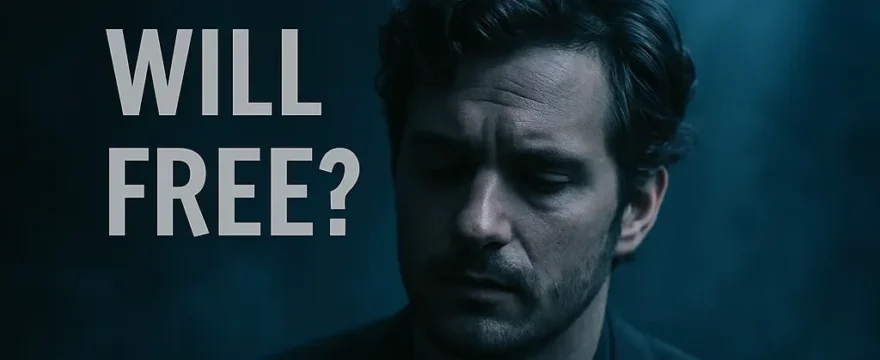This question isn’t primarily about what caused me to want what I want. That’s a question of self-examination—backward-facing, aimed at the soundness of our reasoning. Instead, when we ask “Am I free?” we are asking something forward-facing: What, if anything, is stopping me from doing what I want?
Here we find the distinction made in Westminster Confession of Faith 5.2, between primary and secondary causes. God is the primary cause, who ordains all things for the revelation of His glory. We, and the world around us, are secondary causes—real and meaningful, but never autonomous.
So we ask: am I free to will? The answer is yes, within the realm of secondary causes. Physical, political, or psychological hindrances may obstruct our desires—but the will is free in that if you want to seek God, nothing is stopping you. The real problem is that you don’t want to.
No physical thing such as a brain sensation or bodily impulse or past psychological trauma or withdrawal symptoms can determine you to choose something. Insofar as you are making a choice and not merely reacting, the body can only be one of the inputs that you must consider as you choose. This exposes the quality of your moral reasoning for us all to see.
Primary causes are not like that. God as the primary cause is the origin of our will and what upholds our will in existence. By creating you as who you are, God doesn’t only know what you’ll do the way a parents know if a child will choose broccoli or ice cream. God made you that way, thus predetermining your will. And yet at the secondary causation level you are entirely free. In fact, you must be predetermined to guarantee that your will is caused by you (and you are created by God) rather than uncaused.
Here lies the offense of sola gratia. Objections to God’s sovereign predestination always reduce to a rejection of grace alone. Even professing Christians stumble here, insisting—sometimes subtly—that they must have done something to make themselves more worthy of grace than their neighbor still lost in sin.
But grace is never earned. God didn’t merely look ahead, as the Jesuits tell us, to see who would choose Him. He is the uncaused cause, not a passive observer of hypothetical futures. And we are not gods—we are creatures, dependent on His mercy.
If we’ve truly repented, we’ve turned from that deep-seated desire to be like God, determining our own being. And we do not embrace that desire as the foundation of our philosophy of the will. We see that the Scriptures clearly teach sola gratia.
We are free. And we are predestined by God. Both are true, without contradiction, and in fact, predestination is what upholds our free will.
Could You Have Done Otherwise?
Think back to a momentous decision you made—one that truly mattered to you at the time. Why did you make it? No doubt you can give reasons. Perhaps you even agonized over it. But here’s the question: could you have done otherwise?
You might say, “Of course I could have. I chose freely.” But did you want to do otherwise? No. At least not at the moment you made the choice. That decision flowed from who you were then—what you valued, how you reasoned, what you loved or feared.
So could you have chosen differently? Not unless you were a different person, even if only slightly—different in what you desired or how you thought. Otherwise, all things being equal, the same cause yields the same effect. That’s a basic condition for understanding anything at all. If the same cause could produce a different effect, knowledge would be impossible. Science would collapse. So would moral reasoning.
This is a necessary condition of intelligibility.
Yet some insist a will is only free if it could have done otherwise with everything else being the same. But that breaks the connection between cause and effect. Worse, it denies that we have a nature at all. It reduces the will to a random moment, disconnected from who we are and what preceded the choice.
All things being the same, the cause always produces the same effect. To do otherwise something would have had to be different, but it wasn’t different, so you couldn’t have done otherwise. You chose what you wanted and so your will was unhindered and free.
But we do have a nature. And our choices flow from that nature. In fact, our choices reveal our nature to others.
So why should the will be treated differently than every other part of our life? It shouldn’t be. A free will is not an uncaused will. It’s an unhindered will—free to act according to who we are. My choices are caused by my deliberation. My deliberation is shaped by who I am. And who I am is not self-created. I am caused—created—by God.
Try a thought experiment. Think of that big decision again. Remember the reasons you gave. Now ask: if someone told you, “God predestined you to make that choice,” would it change your reasons?
If you’re a secularist, you’d probably say, “No, because God doesn’t exist.” But if you’re a Biblical Christian, you’d say, “Amen! All to the praise of His glory.”

Leave a Reply